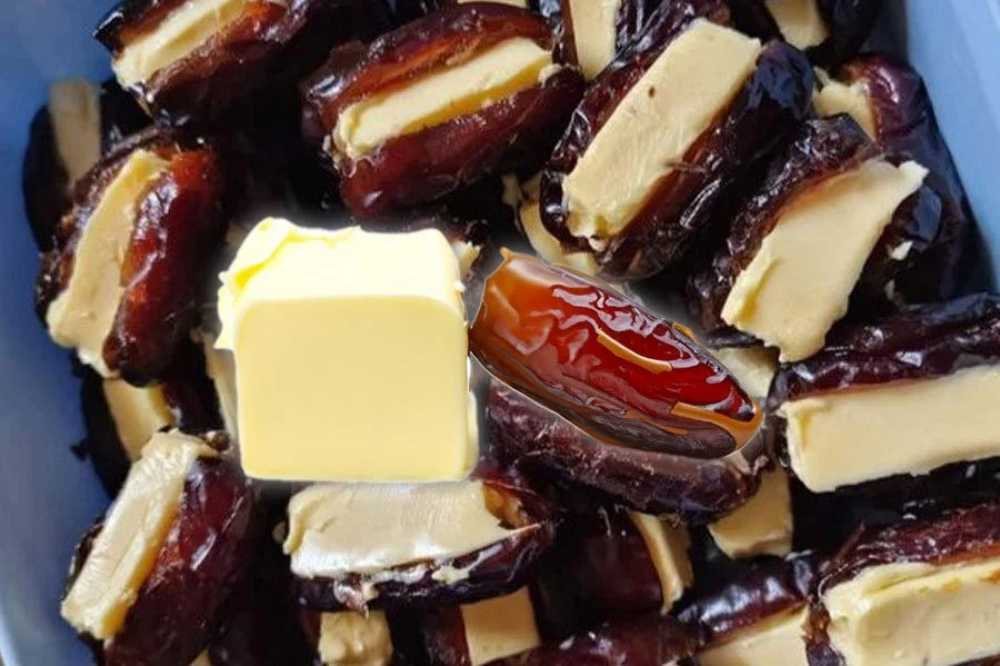As the Ramadan season embraces innovation in traditional foods, a new trend has taken social media by storm – butter-filled dates.
This concoction has become a sensation featuring dates stuffed with butter and sometimes enhanced with honey or nuts. However, Public Health Malaysia (PHM) and nutrition experts raise concerns about the health implications of indulging in this rich treat.
The Butter-Filled Dates Phenomenon
Originally celebrated for their nutritional benefits, dates are being reimagined in myriad ways to appeal to contemporary palates. The latest trend involves slathering a pat of butter inside dates. This practice has garnered attention and endorsement from influential figures and celebrities. Yet, amidst the culinary creativity, voices from the public health sector are urging caution.
The snack went viral after former Federal Territories Mufti Datuk Seri Dr Zulkifli Mohamad Al-Bakri shared a post on Maktabah Al-Bakri’s Facebook page. In the post, he claimed that dried or buttered dates were the favourite food of the Prophet Muhammad SAW.
A Closer Look at the Concerns
PHM has pointed out that while dates are a powerhouse of nutrients, minerals, and fibre, the addition of butter significantly increases the calorie content of this otherwise healthy snack. “Butter is an animal fat laden with saturated fats and high in calories,” PHM noted, likening the calorie content of one butter-filled date to that of a scoop of rice. The emphasis is on moderation, highlighting the risk of excessive calorie intake leading to unhealthy weight gain.
Voices from the Community
The trend has found fans across demographics, with many trying out the recipe for the first time this Ramadan. “I’m not used to eating dates, but after trying this recipe, I plan to make it a simple dish for sahur,” shared Adela Roslan, reflecting a broader curiosity and experimentation with food. However, concerns over health implications have prompted reminders that dates are meant to be eaten in moderation.
Expert Opinions
Dietitian Jazlina Syahrul emphasises that dates are beneficial for their fibre content and pure butter can provide energy, calcium, and vitamins. However, there is a caveat. “A single date contains about 20 calories, but if you add a teaspoon of butter, it becomes 60 to 70 calories,” she explains. She advised that such high-calorie, high-fat treats be consumed judiciously, especially during sahur rather than iftar.
Meanwhile, Dietitian Nur Aiman Taslim mentioned that consuming a maximum of three to four dates with a small teaspoon of butter for each date is sufficient. However, excessive consumption can lead to an increase in bad cholesterol levels and indirectly increase the risk of cardiovascular disease, he explained
Conclusion
The butter-filled dates trend underscores a broader conversation about balancing tradition with modern dietary habits. As this delicacy goes viral, the consensus among health professionals is clear. While innovation in food is welcomed and can make traditional practices more appealing, moderation is key. The ultimate goal is to enjoy the cultural and nutritional richness of Ramadan delicacies without compromising health.

